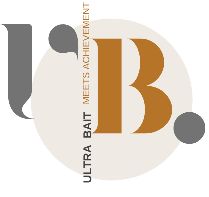In the face of life’s unpredictable events, insurance stands as a beacon of hope, offering financial protection and peace of mind. It is a contract between an individual or entity, known as the insured, and an insurance company, known as the insurer. In exchange for a premium, the insurer agrees to compensate the insured in the event of a specified loss or damage.
The Essence of Insurance
Insurance is a form of risk management that transfers the financial burden of potential losses from the individual to the insurer. By pooling together the risks of many individuals, the insurer can spread the cost of losses, making it more affordable for each policyholder. This risk-sharing mechanism lies at the heart of insurance, allowing individuals to safeguard their assets and financial well-being against unforeseen circumstances.
Types of Insurance: A Spectrum of Protection
The realm of insurance encompasses a wide range of products, each designed to address specific risks and provide tailored protection. Some of the most common types of insurance include:
-
Life insurance: This type of insurance provides financial protection for the insured’s dependents in the event of their death.
-
Health insurance: Health insurance helps individuals cover the costs of medical expenses, including hospitalization, doctor’s visits, and prescription medications.
-
Homeowners insurance: Homeowners insurance safeguards property owners against financial losses due to damage or destruction of their homes from events such as fire, theft, or natural disasters.
-
Auto insurance: Auto insurance provides coverage for bodily injury and property damage resulting from car accidents.
-
Travel insurance: Travel insurance protects travelers against financial losses incurred due to trip cancellations, medical emergencies, or lost luggage.
The Significance of Insurance in Modern Life
Insurance plays a crucial role in modern society, offering individuals and businesses a means to navigate the uncertainties of life. It serves as a safety net, providing financial assistance when unexpected events occur.
-
Peace of Mind: Insurance alleviates the financial worries associated with potential losses, allowing individuals to focus on other aspects of their lives without the constant fear of financial hardship.
-
Business Continuity: For businesses, insurance safeguards their assets and operations against disruptions caused by accidents, natural disasters, or other unforeseen events.
-
Economic Stability: Insurance contributes to economic stability by preventing individuals and businesses from facing financial ruin due to unexpected losses.
Choosing the Right Insurance: Tailored Protection
With a multitude of insurance options available, selecting the appropriate coverage can be a daunting task. To make informed decisions, individuals should consider their specific needs, risk factors, and financial situation. It is advisable to consult with insurance professionals who can assess individual requirements and recommend suitable insurance plans.
Conclusion: A Pillar of Financial Security
Insurance stands as a cornerstone of financial security, offering individuals and businesses protection against the uncertainties of life. By understanding the various types of insurance available and choosing the right coverage, individuals can safeguard their assets, protect their loved ones, and ensure peace of mind.



